Longbridge positions itself as a "new-generation internet brokerage" which focuses on a mobile-first, zero-commission trading […]
How to choose between VOO and VTI?
VOO and VTI are popular low cost index funds, designed for investors to buy the whole stock market.
If you want to keep investing as simple as possible and only invest in one stock index fund, VOO and VTI are popular low cost index funds for consideration. Let’s find out which low cost index fund is a better investment.
Why should you buy an index fund?
"Index funds are better investment vehicles than individual stocks for most investors"
The winning strategy for investing in stocks is to own all of the nation’s publicly held businesses at very low cost. By doing so, you are guaranteed to capture almost the entire return that these businesses generate in the form of dividends and earnings growth.
Index funds tend to perform better over the long term than actively managed funds.
Simplicity
The best way to implement this strategy is indeed simple: Buy an index fund that holds this all-market portfolio, and hold it forever. The index fund is a portfolio that holds many stocks designed to mimic the overall performance of the U.S. stock market
Diversification and lower risk
The index fund eliminates the risks of individual stocks, market sectors, and manager selection. Only stock market risk remains. Although buying into an ETF is less risky than buying into an individual stock, it is not susceptible to a plunge when there is a crisis within a stock market.
Caveat
Index funds make up for their lack of short-term excitement with their long-term productivity. Buying into an ETF complements with a buy and hold strategy.
Warren Buffett recommends index funds for average investors
Buffett is a huge fan of Vanguard, the creator of the index fund, for their simple, low-cost and high-performing options.
Jack Bogle created index funds almost 45 years go for everyday investors to compete with the pros. How it works: Instead of picking stocks that you think will out-perform the market, you own all of the stocks in a certain market index, like the S&P 500 or the Dow Jones Industrial Average. As such, index funds are simple and convenient.
In several Berkshire Hathaway’s annual shareholder letter, Warren Buffett regularly recommended a low-cost S&P 500 index fund for investors.
"A low-cost index fund is the most sensible equity investment for the great majority of investors. By periodically investing in an index fund, the know-nothing investor can actually out-perform most investment professionals"
VTI: Vanguard Total Stock Market ETF
- Seeks to track the performance of the CRSP US Total Market Index.
- Large-, mid-, and small-cap equity diversified across growth and value styles.
- Employs a passively managed, index-sampling strategy.
- The fund remains fully invested.
- Low expenses minimize net tracking error.
Portfolio composition for VTI
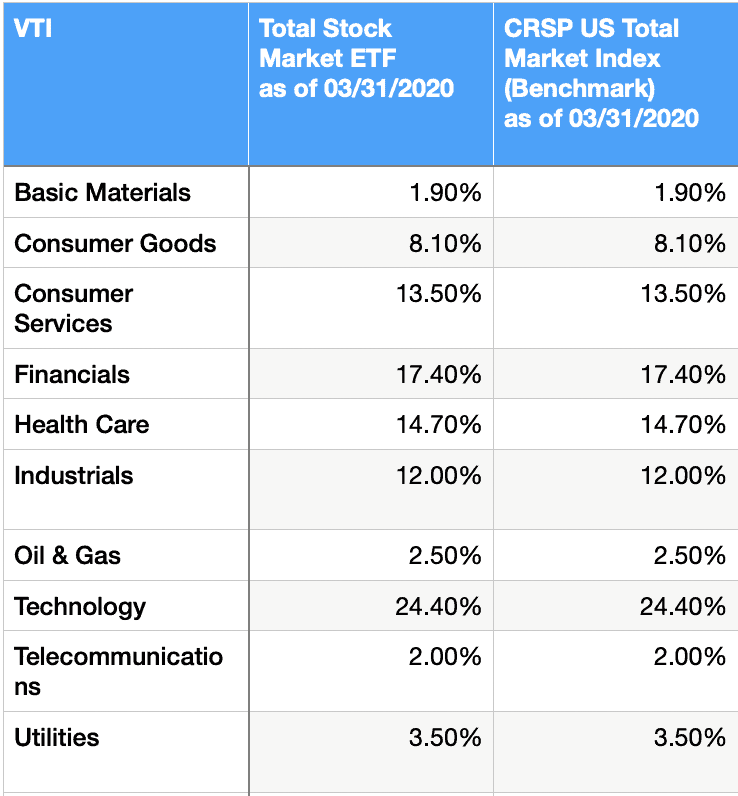
VOO: Vanguard S&P 500 ETF
- Invests in stocks in the S&P 500 Index, representing 500 of the largest U.S. companies.
- Goal is to closely track the index’s return, which is considered a gauge of overall U.S. stock returns.
- Offers high potential for investment growth; share value rises and falls more sharply than that of funds holding bonds.
- More appropriate for long-term goals where your money’s growth is essential.
Portfolio composition for VOO
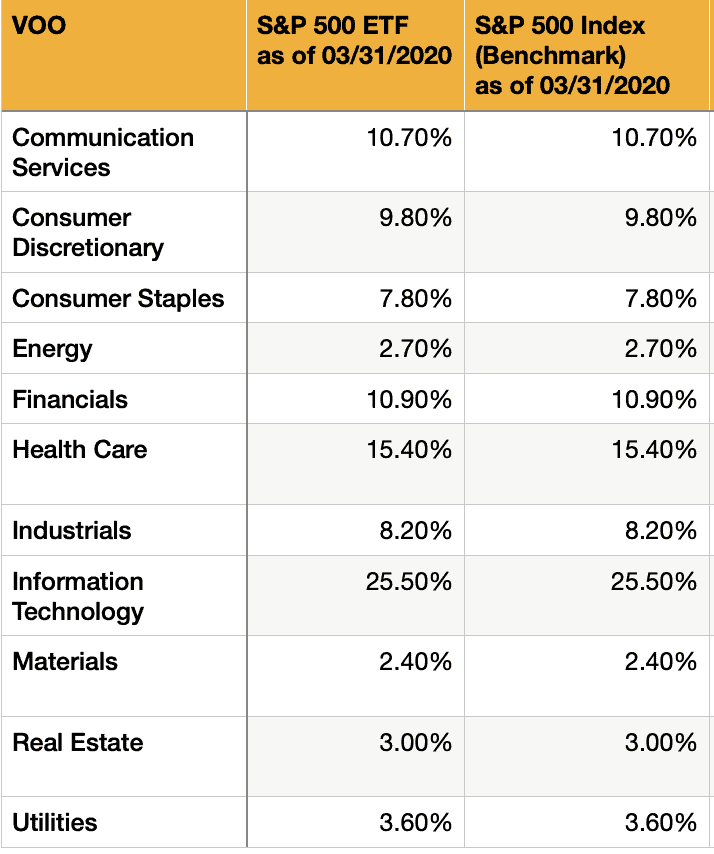
VOO vs VTI: key findings and overlap
- VOO is a subset of VT: 100& of VOO's holdings are within VTI's
- 14.9% of VTI's holdings are in VOO.

What companies are in VTI and VOO ETF?
The top 10 stocks amount to 26.5% (VOO) and 22.4% (VTI) of the ETF’s holdings. For both VTI and VOO, the biggest US companies constitute a large percentage of the ETF’s holdings.
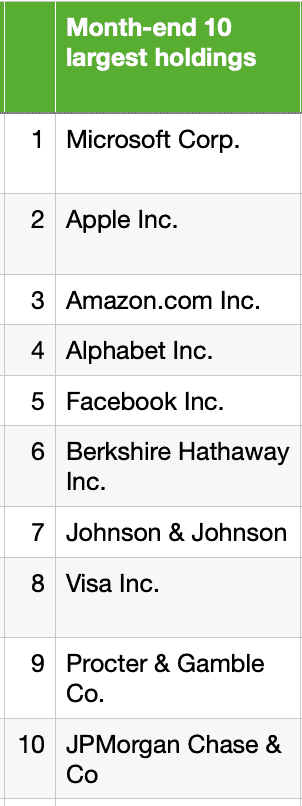
VOO contains only large-cap stocks and since VTI is market-cap weighted, it’s composed of about 75% large-cap stocks.
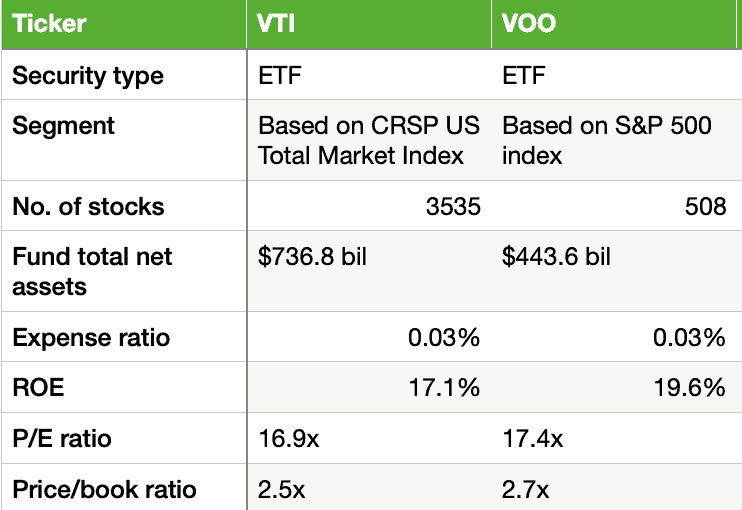
The performance of VTI is slightly better than VOO
This is not surprising given that VTI holds a diversified portfolio of stocks, including mid-cap and small-cap stocks.
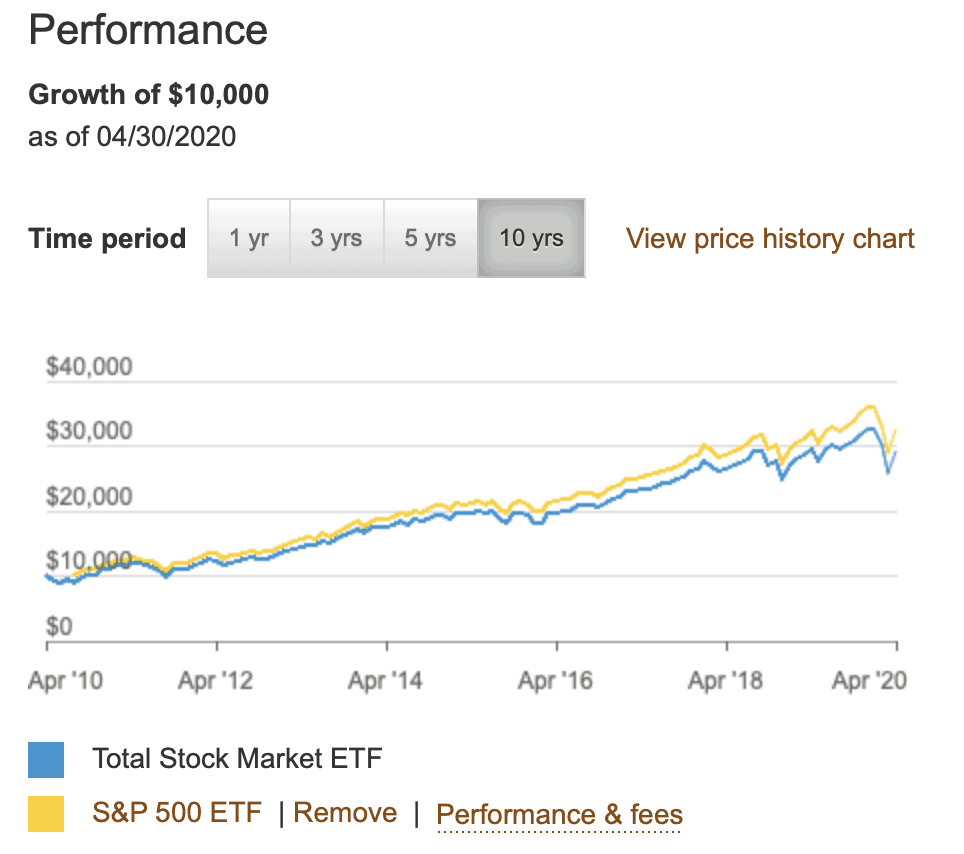
Check out this video for more insights
TDLR: What is the best ETF to buy now?
- Type of exposure: If you’d like to cover the entire US stock market, consider VTI. If you’re focused on S&P 500, VOO may be a better choice.
- Diversification: If you prefer a slightly more diversification with the inclusion of mid-cap and small-cap stocks, VTI may be a better choice
Related articles:
VTI vs VTSAX: Comparing the differences between an ETF and index fund
Thank you for reading! Please like my Facebook page to get the latest updates. Please click here for Referral deals.







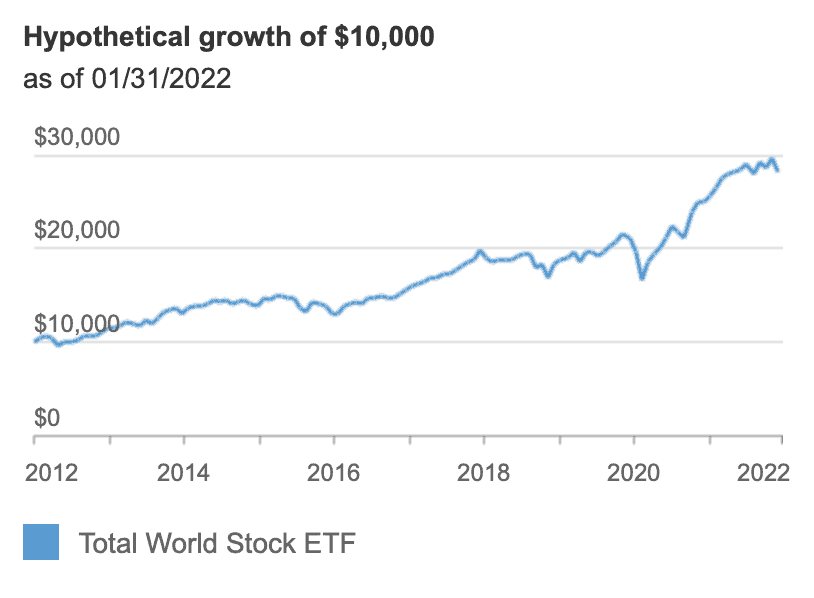
Hi Jen, what’s the best way to buy VOO in Singapore, broker or fund house or robo-advisor?
Hi KW, I personally use TDAmeritrade to buy VTI because there is a one time charge of $10++ but do note that it will cost $25 for cash withdrawal. However, it is not a concern for me as I will be holding onto the ETF for many years.
[…] VTI vs VOO: which index fund is a better investment (updated 2020) […]